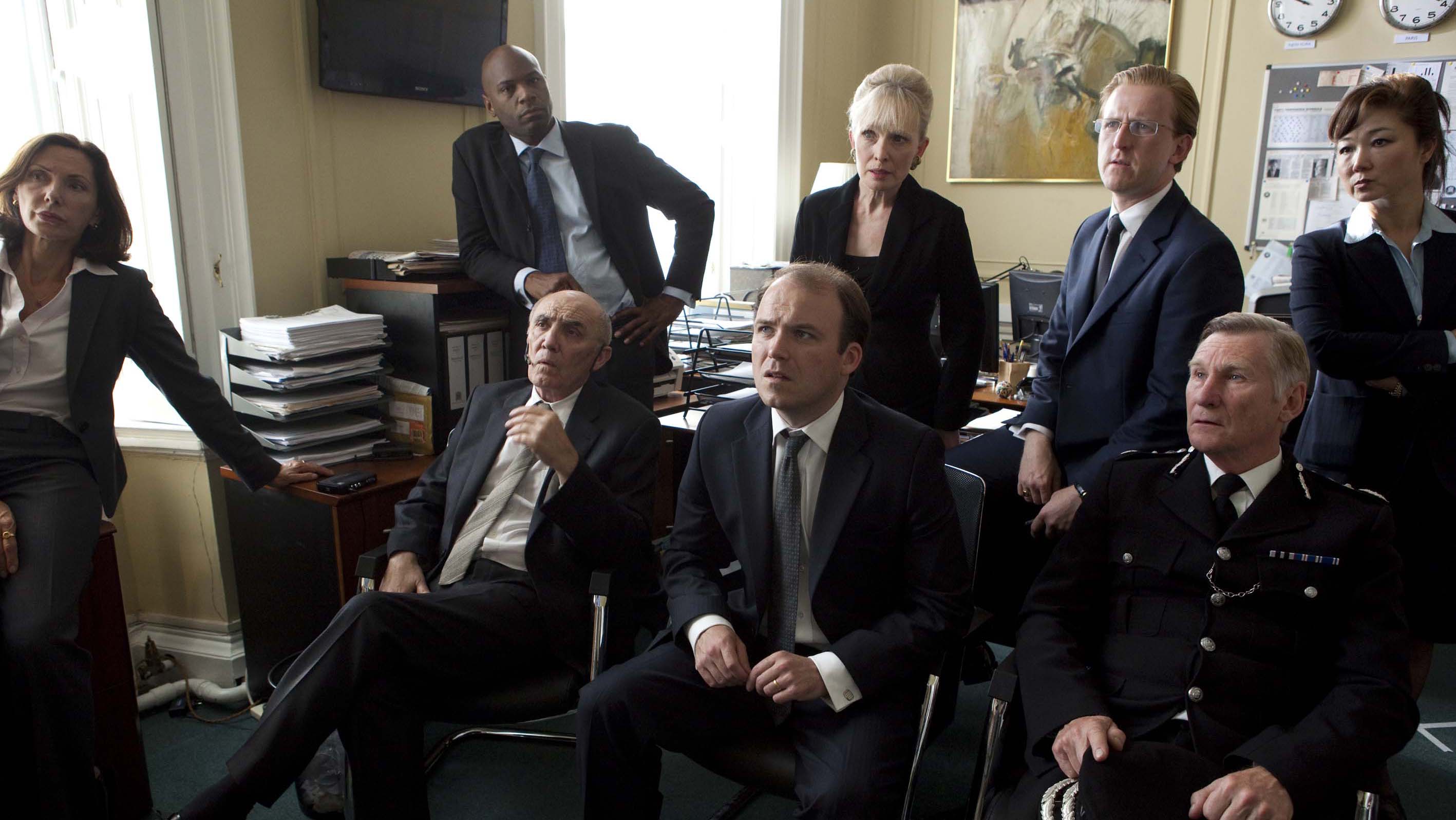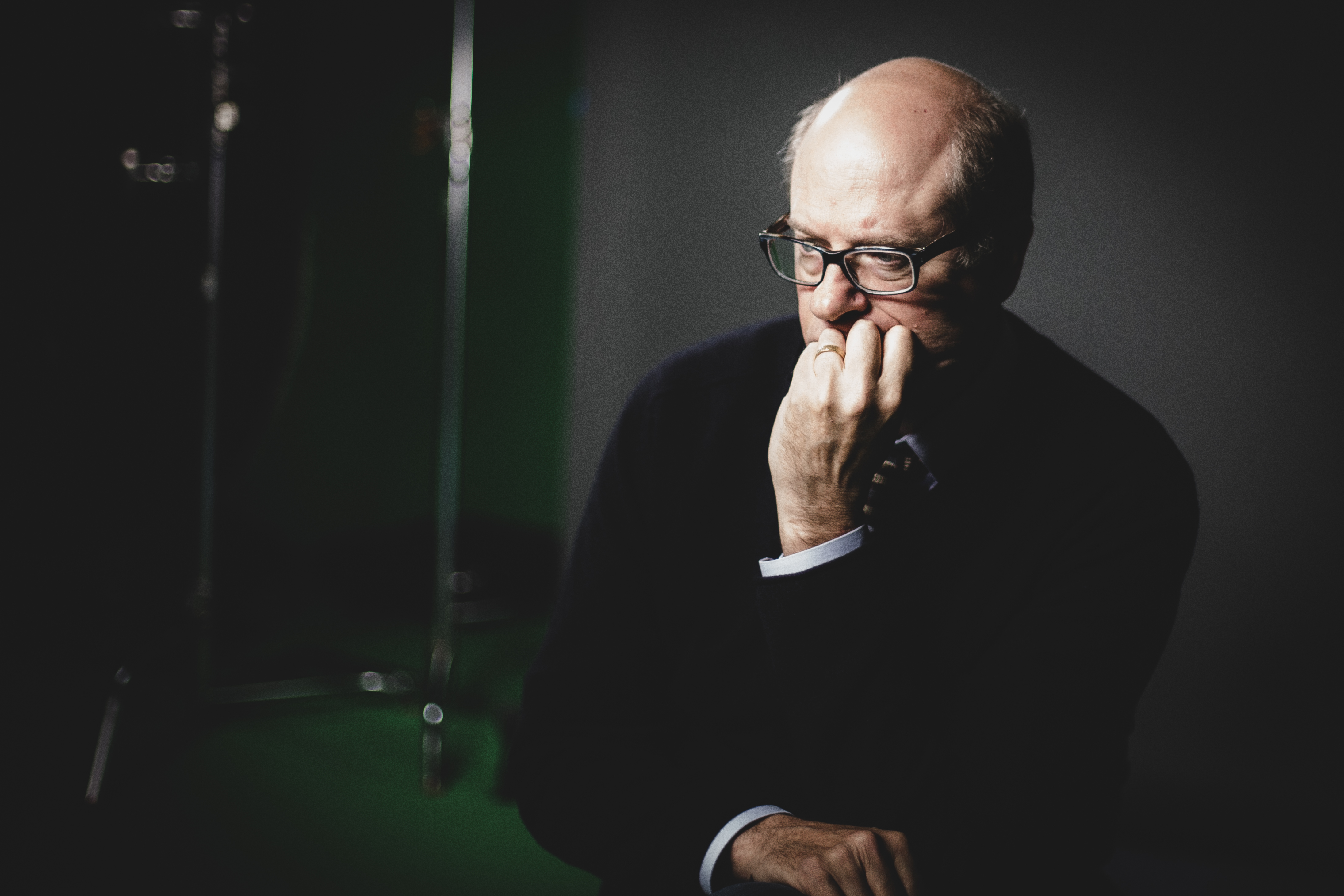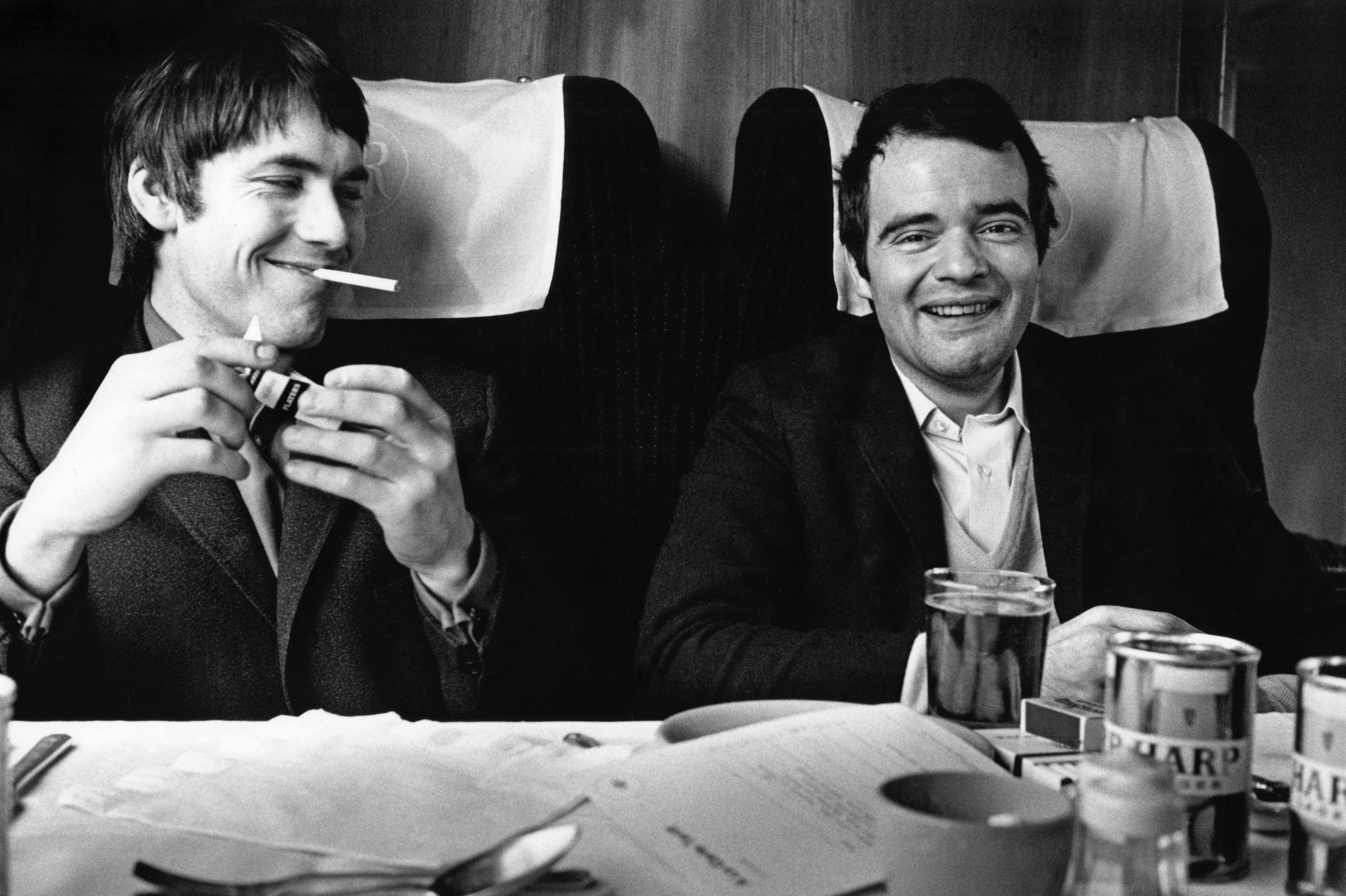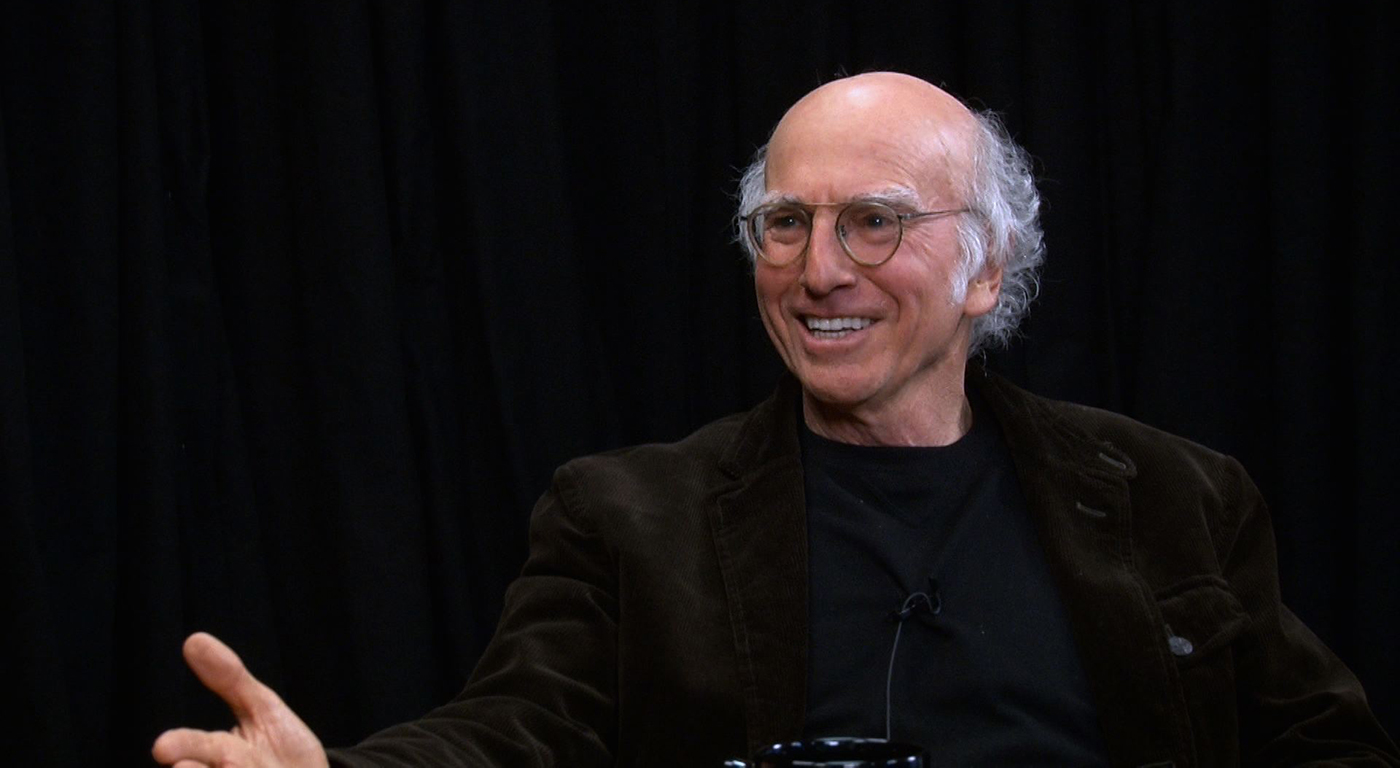Britain’s audacious answer to The Twilight Zone for our plugged-in world of social media and screen culture, Black Mirror seemed to come out of nowhere. The anthology show debuted on Netflix in December with “The National Anthem,” which caused a viral sensation. That first episode addressed hacking, cybercrime, political protest, and extortion with a savagely satirical story about the kidnapping of a royal family member. To save her, the Prime Minister was instructed—in the form of a video ransom demand streamed for the world to watch—to fuck a pig on live television, and he did. “The National Anthem” was the most transgressive thing I’ve ever seen on TV, and I see a lot of TV.
Written by English journalist-turned-satirist Charlie Brooker, Black Mirror’s creator, that episode was wickedly, nastily funny. Unlike most premium American television, however, its shock value has a real point. The YouTube terrorism of “The National Anthem” is but an nth-degree exaggeration of our own cyber-bullying, celebrity phone hacking, and North Korean cyber-attacks. Just as the rapt, ghoulish audience within the show watched with the same mix of clucking concern and morbid fascination we regularly bring to TV reality sideshows and Internet click-bait, we stuck around to see if Brooker would follow through on his dare. He played on our own desire to see the worst—then gave it to us. But he also gave us the human element: what happens to the man in the midst of the nightmare.
Some were surprised to learn, however, that Black Mirror isn’t brand-new. In fact—and this makes it seem all the more prescient—the show debuted on English television in 2011, ran here to a small audience on DirectTV in 2013, then finally scored a wide viewership thanks to the gargantuan reach and instant access of Netflix. All six episodes of the first two seasons are currently available to stream. A seventh episode—a 2014 Christmas special starring Jon Hamm—played on British TV and stateside on DirecTV, but has yet to reach Netflix. And apparently there are plans for a possible American remake. Few U.S. critics were previously aware of Black Mirror, which arrived at just the right cultural moment—more immediate, relevant, and daring than anything else on American TV.
During the winter doldrums, as most shows went on hiatus for holiday specials and other network stunts, most of us TV lovers were busy deciding if binge-watching Marco Polo was a form of cruel and unusual punishment. Then came the news that every episode of Friends would be available on Netflix in January, yawn. So Black Mirror crushed the competition and began dominating the TV discussion.
Why is that? Across our spectrum of network, cable, and streaming channels, sci-fi and fantasy shows are surprisingly backward-looking. Social commentary has been left to the prism of period shows like Mad Men and The Americans: modern life refracted through the lens of the past. Premium annals like HBO and Showtime generate buzz with thoughtful, challenging adult storytelling mixed with nudity, sex, and violence. Game of Thrones is a brilliant warped mirror of European history and the ways of power and politics, but it tells us nothing about The Way We Live Now. (Meanwhile Starz has largely abandoned storytelling and gone straight for spectacle in the sex-and-bloodbath pageant of Spartacus and the silly Da Vinci’s Demons.)
Brooker, by contrast, is genuinely out to challenge the audience and its expectations. (He recently told The New York Times, “Most dramas tend to reassure the viewer,” whereas his goal is to “deliberately unnerve the viewers.”) Not unlike Rod Serling and The Twilight Zone, he’s using fantasy and sci-fi to comment on modern life and the human condition. There’s usually a barbed twist somewhere along the journey; but unlike most recent Twilight Zone copycats, the topical hook is there to snag the viewer so Brooker can reel them into his narrative payoff. He has a thing for genre conventions, acerbic commentary, and pushing the envelope of acceptable humor, using these tools not to offer solutions, but to critique and reframe how we see our social problems.
Thus “The National Anthem” twists cyber-terrorism into an act of perverse performance art. Its English viewers are compelled to give the terrorist exactly what he wants: their undivided attention. And that too is Brooker’s mission: TV from which you cannot turn away.
And what precisely are we staring at? That brings us to Brooker’s title, which sounds like some supernatural artifact. In fact his dark mirror references something endemic to modern American life. It’s the interface of your media device of choice: smartphone, tablet, TV monitor . . . that dark screen that threatens to suck you in when you power it up. In the near- and not-so-near futures of Black Mirror, we see the spectacle of our own surrender to those screens. “I like technology, but Black Mirror is more what the consequences are . . . how we use or misuse it,” Brooker recently explained in Wired. “We’ve not really thought through the consequences of it.”
Subsequent episodes lack the shock and audacity of “The National Anthem,” but not the fundamental insight. Again our relationship with technology changes how we interact with one another. “The Entire History of You” imagines life with a digital hard drive supplementing our unreliable organic memories. Its users constantly rewind back—to both the good parts and the not-so-good parts—rather than looking forward. What’s a better gotcha in the middle of a lover’s spat than projecting onto the living-room TV a moment your partner would rather forget? It’s a sort of mind-meld WiFi retaliation.
“Be Right Back” is more delicate and wistful, a touching twist on “The Monkey’s Paw,” about a grieving widow cushioning her loss through a digital avatar recreated from the footprint of her husband’s social-media presence. Her mourning only becomes more heartfelt while trying to connect with a virtual echo of flesh and blood. And the searing “White Bear” pivots from a world-gone-wild horror into an even more insidious portrait of savage justice as interactive entertainment.
Brooker’s stories are novel enough to draw us in, yet familiar enough to become a warped reflection of ourselves and our culture. But what makes these stories matter is the human element. Technology is ultimately a tool, and Black Mirror is about how we allow these tools to get in the way of human connection and communication—or worse, become a substitute for them. The irony that this show has become a minor sensation thanks to Netflix’s technological infiltration into 50 million willing American homes, making us slaves to the screen, surely can’t be lost on Brooker. Maybe there’s a plot in there for season three. Meanwhile, I’ve got another episode to plug into.
arts@seattleweekly.com







